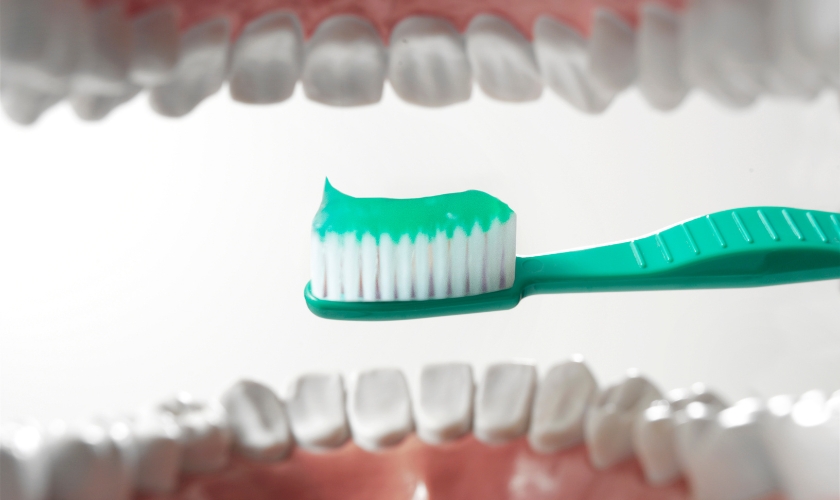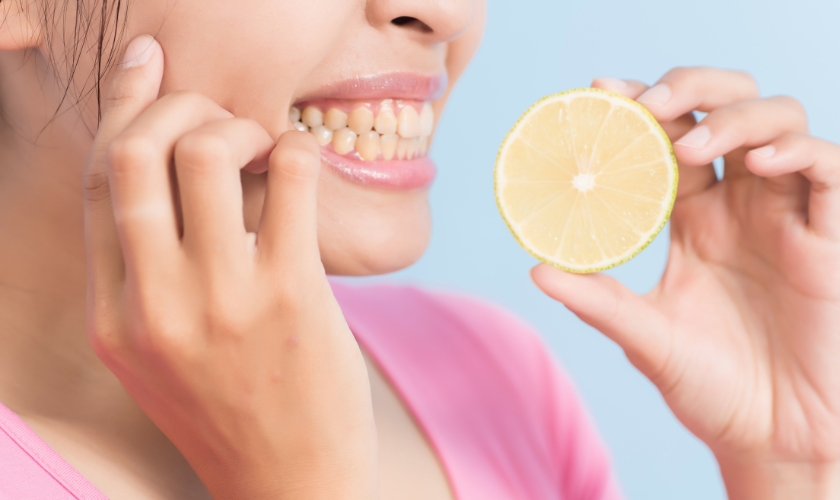Call: (630) 812-7929
Is It Good to Brush Your Teeth with Salt?


Brushing your teeth with salt is a traditional oral hygiene practice that has been around for centuries. While modern toothpaste formulations have largely replaced salt, some people still turn to this natural remedy for various reasons. This article explores the benefits and potential drawbacks of brushing your teeth with salt and provides guidance on how to use it safely if you choose to incorporate it into your oral care routine.
Benefits of Brushing Your Teeth with Salt
1. Antibacterial Properties
Salt has natural antibacterial properties that help reduce harmful bacteria in the mouth. By inhibiting bacterial growth, salt can prevent infections such as gum disease and tooth decay, promoting better oral health. Using salt as a rinse can also soothe inflamed gums and aid in healing mouth sores. This simple yet effective measure helps maintain fresh breath and overall dental hygiene by creating an environment less favorable for bacterial survival.
2. Neutralizing Acids
Salt can neutralize acids in the mouth, which are produced by bacteria after consuming sugary or starchy foods. These acids can erode tooth enamel, leading to cavities. By neutralizing these harmful acids, salt helps protect tooth enamel and prevent decay. Regular use of a saltwater rinse can therefore be an effective measure to safeguard your teeth against cavities and maintain overall oral health.
3. Natural Exfoliant
Salt’s coarse texture acts as a natural exfoliant, aiding in the removal of surface stains and plaque from your teeth. By gently scrubbing the tooth surface, salt helps to lift away debris and discoloration, contributing to a brighter smile and a cleaner, fresher feeling. This natural abrasive action can enhance your dental hygiene routine, making it easier to maintain a clean, attractive smile while reducing plaque buildup.
4. Affordable and Accessible
Salt is a common, low-cost household item that is both readily available and inexpensive. Its accessibility makes it a viable alternative for those who might not have access to commercial toothpaste. By using salt, individuals can still maintain oral hygiene and benefit from its antibacterial and exfoliating properties. This makes it an effective, budget-friendly option for promoting dental health, especially in areas where dental care products may be less accessible.
5. Remedy for Sore Throats and Mouth Sores
Saltwater rinses are widely used to soothe sore throats and mouth sores due to their soothing and antiseptic properties. Similarly, brushing with salt can provide relief for minor oral irritations by reducing inflammation and promoting healing. The salt helps to cleanse the affected areas and create an environment less hospitable to bacteria, offering comfort and aiding in the recovery of sore spots or small mouth sores. This makes salt a practical, soothing remedy for various oral discomforts.
Potential Drawbacks of Brushing Your Teeth with Salt
1. Abrasiveness
Salt’s abrasive nature can be beneficial for removing stains and plaque, but it also carries risks if used excessively. Overusing salt or brushing too vigorously with it can wear down tooth enamel, leading to increased sensitivity and a higher risk of cavities. To avoid damage, use salt sparingly and gently. It’s important to balance its use with other dental care practices and to consult with your dentist to ensure that your oral hygiene routine remains safe and effective.
2. Irritation to Gums and Oral Tissues
Salt can be harsh on the soft tissues of the mouth, including the gums and the lining of the cheeks. Frequent use of salt, especially if applied too vigorously, may lead to irritation, redness, and even sores. This irritation occurs because salt’s abrasive and drying effects can disrupt the delicate balance of moisture and cause discomfort. To minimize these risks, use salt cautiously and consider consulting with your dentist to ensure that your oral care routine is gentle and effective.
3. Lack of Fluoride
Fluoride is a crucial ingredient in most commercial toothpaste because it strengthens tooth enamel and helps prevent decay. Unlike fluoride toothpaste, salt does not contain fluoride. Consequently, relying solely on salt for brushing can leave your teeth more susceptible to cavities and enamel erosion. To ensure comprehensive dental protection, it is important to use fluoride toothpaste in addition to any other oral hygiene practices, such as salt rinses, to maintain optimal tooth health and prevent decay.
4. Unpleasant Taste
The strong, salty taste of salt can be unappealing to some individuals, potentially making it difficult for them to adhere to a consistent oral hygiene routine if they rely solely on salt. This aversion may lead to irregular use and diminished effectiveness in maintaining oral health. To ensure effective and enjoyable dental care, it is often better to use salt in conjunction with more palatable and fluoride-containing dental products, thereby promoting better compliance and overall oral hygiene.
How to Safely Incorporate Salt into Your Oral Care Routine
If you decide to use salt as part of your oral care routine, here are some tips to do so safely:
- Use in Moderation: Limit the use of salt to a few times a week rather than daily. This will help prevent excessive abrasiveness and potential damage to enamel.
- Mix with Toothpaste: Combine a small amount of salt with your regular fluoride toothpaste. This allows you to benefit from both the cleaning properties of salt and the protective effects of fluoride.
- Create a Saltwater Rinse: Instead of brushing with salt, consider making a saltwater rinse. Dissolve a teaspoon of salt in a glass of warm water and use it to rinse your mouth. This can help reduce bacteria and soothe oral irritations without the risk of abrasion.
- Gentle Brushing Technique: When using salt, be gentle. Use a soft-bristled toothbrush and avoid applying too much pressure. Brush in gentle, circular motions to minimize the risk of enamel erosion and gum irritation.
- Consult Your Dentist: Before incorporating salt into your oral care routine, consult with your Lombard dentist. They can provide personalized advice based on your specific dental needs and ensure that it won’t interfere with any existing dental conditions or treatments.
Brushing your teeth with salt can offer some benefits due to its antibacterial properties and ability to neutralize acids. However, it also comes with potential drawbacks, such as enamel abrasion and gum irritation. If you choose to use salt, do so in moderation and consider combining it with regular fluoride toothpaste to ensure comprehensive oral care. As always, maintaining good oral hygiene practices, such as brushing twice daily, flossing, and regular dental check-ups, is essential for overall dental health. If you have concerns about using salt or any other aspect of your oral care routine, consult your dentist for professional guidance.





